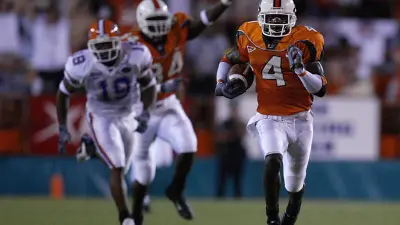In the fascinating world of competitive cycling, athletes are not only masters of physical endurance, but also of mental strength. Insights into the mind of the professional cyclist reveal how they deal with pressure, competition and the challenges of competition. These athletes use mental strategies to maximise their performance and overcome the limits of their bodies. By understanding their psychological processes, we can not only better understand their achievements, but also gain valuable lessons for everyday life.
What are the psychological challenges that professional cyclists face?
Professional cyclists face a variety of psychological challenges that can affect their performance and well-being. The constant pressure to perform at the highest level often leads to significant stress. Athletes not only have to push their physical limits, but also deal with the expectations of coaches, sponsors and fans. These external demands can lead to fears and self-doubt, which in turn affect mental strength and concentration.
Another aspect is the isolation that many cyclists experience during intensive training phases. They often spend long hours alone on the road or in the velodrome, which can lead to a feeling of loneliness. This isolation can negatively affect mood and reduce motivation, which can ultimately impact performance. While social contact with teammates is important, it is often not enough to meet emotional needs.
Finally, professional cyclists also have to deal with the constant fear of injury. A bad crash or physical overload can not only endanger their career, but also lead to deep psychological trauma. Worrying about their own health and uncertainty about the future can have a paralysing effect. It is therefore crucial that athletes develop strategies to deal with these challenges, whether it be through mental training methods, talking to psychologists or building a stable social support network.
Similarly, managing stress and finding moments of relaxation are important for everyone, not just athletes. For instance, enjoying recreational activities like online gaming can provide a welcome distraction. Platforms such as Stay Casino offer entertainment options, and with their Stay Casino no deposit bonus code players can enjoy the experience without financial commitment. Such small indulgences can help balance the pressures of daily life, making it easier to recharge mentally.
How does mental strength influence the performance of professional cyclists?
More Sports News
Mental toughness plays a crucial role in the performance of professional cyclists, as it encompasses not only the ability to perform under pressure but also the resilience to overcome setbacks. In a sport characterised by physical exhaustion and mental stress, a strong mental state enables athletes to continually push their limits and stay motivated even in the face of challenges such as injuries or competitive pressure.
In addition, mental strength promotes concentration and decision-making ability during the race, which can make the difference between winning and losing. Professional cyclists who specifically train their mental strength are often better able to optimise their performance and achieve long-term success.
What strategies do professional cyclists use to deal with pressure and stress?
Professional cyclists are under immense pressure during competitions and training sessions, which puts both physical and mental strain on them. One of the most effective strategies for dealing with this stress is targeted mental training. Athletes use techniques such as visualisation to prepare for the competition and to see positive results in their mind’s eye. This mental preparation helps them to reduce their anxiety and focus on their performance.
In addition, many professional cyclists rely on routines and rituals to create a sense of stability in their daily lives. These familiar processes before and during races give them a sense of control and security. Whether it’s the right warm-up, special nutrition or listening to music – such strategies help to reduce stress levels and promote concentration. Repeating these rituals can also boost self-confidence and reduce nervousness.
Another important aspect is the support of teammates and coaches. The community within a team not only provides emotional support but also practical tips for managing stress. By sharing experiences and showing solidarity within the team, athletes can learn how to better deal with pressure. This social network plays a crucial role in increasing mental resilience and optimising performance under pressure.
To what extent do team dynamics play a role in the psychological state of professional cyclists?
Team dynamics are a crucial factor for the psychological state of professional cyclists. In a sport that is often characterised by individual performance, the support and cohesion within the team can have a significant impact on the well-being of the athletes. A positive team dynamic fosters the sharing of experiences and strategies, which not only boosts self-confidence but also alleviates the pressure associated with competition. Cyclists who feel comfortable in their team are often more motivated and better able to cope with the challenges that the sport brings.
Furthermore, harmonious team dynamics can help to reduce stress and increase resilience. When professional cyclists can rely on their teammates to help them overcome both ups and downs together, they feel emotionally supported. This social security is particularly important during periods of intensive training or major competitions, when the mental pressure is enormous. Ultimately, strong team dynamics not only help to improve individual performance, but also contribute to the long-term psychological health of the athletes.
Mental toughness in cycling: the key to success
Mental toughness plays a crucial role in cycling, as it not only helps athletes to overcome physical challenges but also to build psychological resilience. In a sport characterised by long training sessions and intense competition, mental techniques such as visualisation and goal setting are essential to maintaining motivation and overcoming setbacks. Cyclists who train their mental strength can better cope with stressful situations and improve their performance.
The art of jumping in mountain biking
The ability to focus on the competition and ignore distractions is another important aspect of mental strength. With regular mental training, athletes develop greater self-confidence and a positive attitude that has a direct impact on their races. Ultimately, it is the combination of physical training and mental preparation that makes the difference between an average and an outstanding cyclist, and thus becomes the key to success in cycling.
Mental challenges: psychological hurdles for professional cyclists
Professional cyclists not only face physical challenges, they also struggle with profound psychological hurdles. The pressure to consistently deliver top performances can lead to enormous stress and anxiety. These mental stresses are often just as crucial to an athlete’s success as their physical fitness. The constant competition and the expectation of breaking records can undermine self-confidence and lead to mental blocks.
Another aspect is the injuries
that are common in cycling. The fear of setbacks and the associated insecurity can have a significant impact on performance. Professional cyclists must learn to deal with these fears and train their mental strength to be successful on the road. They develop strategies to motivate themselves and regain control of their thoughts, which has a decisive influence on their performance.
Finally, team dynamics play an essential role in the psychological well-being of professional cyclists. Cohesion within the team can be supportive, while rivalries and conflicts can increase pressure. A strong team structure not only promotes individual well-being but also collective success. Professional cyclists must learn to overcome their mental hurdles and rely on the strengths of their teammates in order to stay at the top together.
Psychology on two wheels: strategies for competition
In competition on two wheels, psychology plays a crucial role in success. Athletes not only need to be physically fit, but also mentally strong to master pressure situations with confidence. Strategies such as visualisation, mindfulness and targeted breathing techniques help athletes to increase their concentration and reduce anxiety. It is also important to develop a positive mindset to view setbacks as learning opportunities. By employing these psychological tools, cyclists can not only maximise their performance but also enjoy a more fulfilling competitive experience.
Preventive measures for safe cyclists
From doubt to triumph: mental techniques of cyclists
In cycling, mental techniques are just as important as physical skills. The ability to overcome doubts and fears can be the difference between winning and losing. Many cyclists use visualisation techniques to prepare for their races. By imagining how they will master the course and overtake their competitors, they create a strong mental image that gives them strength at crucial moments. This positive self-influencing not only helps to reduce nervousness, but also boosts self-confidence.
In addition, mindfulness plays a central role in the mental training of cyclists. Through targeted breathing exercises and meditation, athletes learn to stay in the moment and focus on their performance instead of being distracted by external factors. These techniques enable them to stay calm even under pressure and to perform at their best. The transition from doubt to triumph thus becomes a tangible goal that can be achieved through mental strength and discipline.
The mind of a champion: inner struggles in cycling
In cycling, it is not only the physical challenges that shape the athletes, but above all the inner struggles that they have to overcome. The mind of a champion is demonstrated by the ability to break through doubt, fear and exhaustion. Every pedal stroke becomes a symbol of determination and perseverance. Athletes learn to overcome their mental limits and motivate themselves even when the body cries out to give up. It is this inner strength that sets them apart and enables them to achieve their goals and make history.
The fascinating insights into the psyche of professional cyclists reveal not only the mental challenges they face, but also the strategies they develop to stay at the top. These athletes show how important mental strength and resilience are in competitive sports. Their stories inspire not only athletes, but also people in other walks of life to use the power of the mind to achieve their goals and overcome obstacles.


















